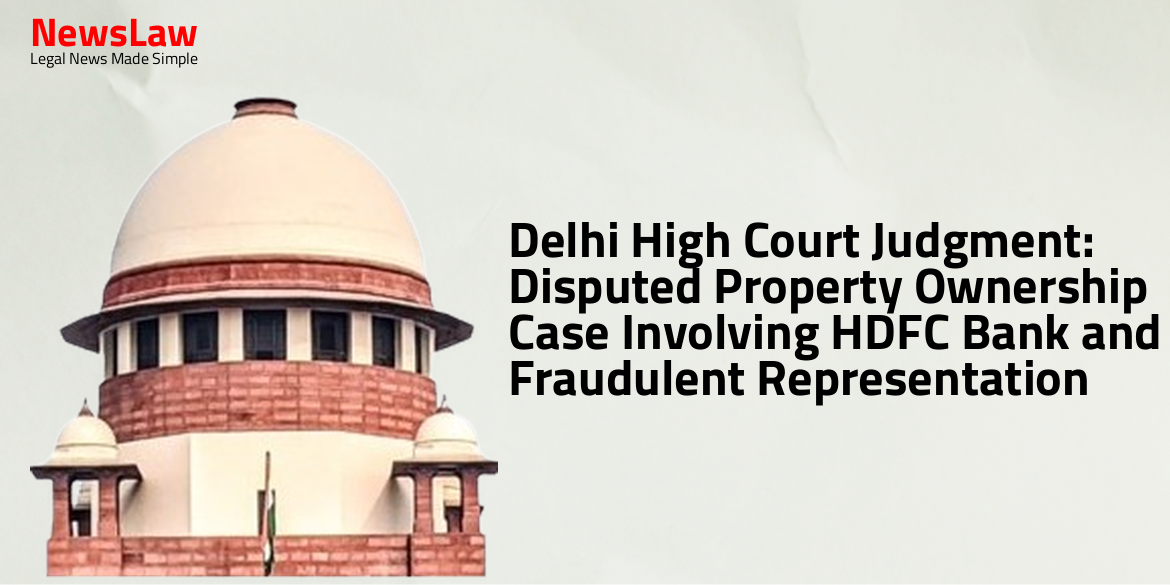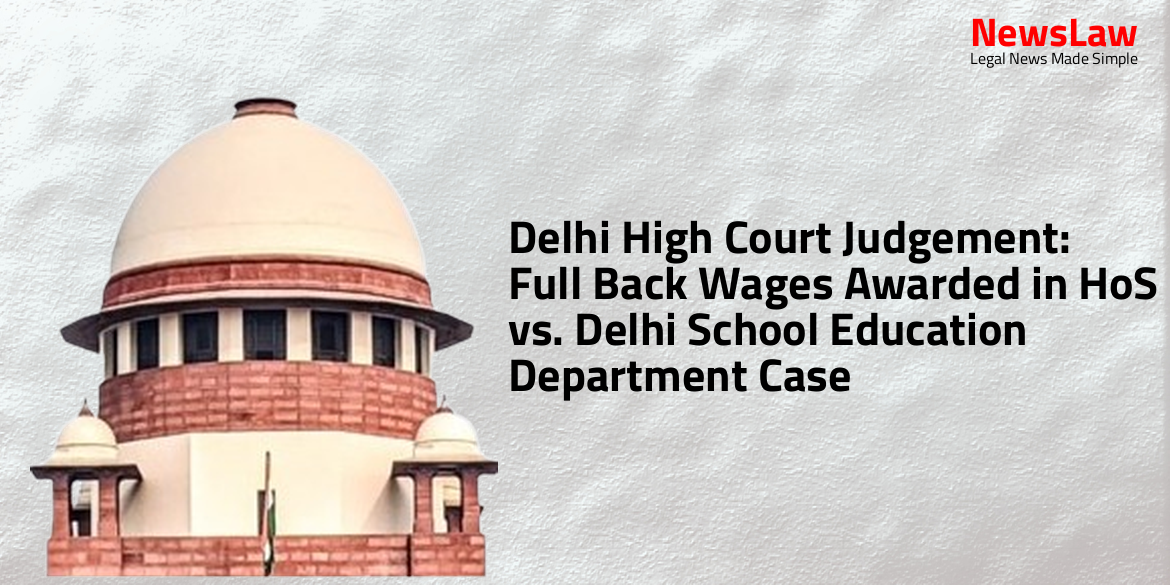The Delhi High Court recently delivered a significant judgment in a disputed property ownership case involving HDFC Bank and fraudulent representation. The case revolves around allegations of misrepresentation by Respondent Nos. 2 to 5, impacting the rights of the Petitioner. The court’s decision sheds light on issues of property title verification and the consequences of fraudulent practices in real estate transactions.
Facts
- Petitioner purchased the subject property with a home loan from HDFC Bank.
- HDFC Bank created security interest on the subject property and registered it on CERSAI Portal.
- Petitioner did due diligence by checking CERSAI Portal and original sale deeds, found no encumbrances.
- Petitioner unaware that vendors had availed a loan of Rs. 4.25 crores from Respondent No 1 Bank.
- Vendors had entered into a collaboration agreement for re-building the structure on the property.
- Petitioner is upheld as the present owner of the property in the Appeal.
- The subject property was purchased for Rs. 1.25 crores.
Arguments
- ARG_RESPONDENT claimed that the Petitioner did not acquire the subject property as a bona fide purchaser for valuable consideration.
- They argued that the Petitioner had prior knowledge of the defects in the property, thus affecting their bona fide purchaser status.
- ARG_RESPONDENT presented evidence to support their claim that the Petitioner was not entitled to the protections afforded to bona fide purchasers.
- The court considered ARG_RESPONDENT’s arguments and evidence in evaluating the Petitioner’s status as a bona fide purchaser.
Analysis
- Petitioner had been cheated by Respondent Nos. 2 to 5 as they misrepresented the property as free from mortgage or encumbrance
- Original title deeds acquired by Respondent Nos. 4 and 5 are with Respondent No 1 Bank since 2006
- Reliance on Section 26-E of SARFAESI Act not applicable as Respondent No 1’s mortgage is prior to Respondent No 7 Bank
- Section 27 has been omitted and is not in force anymore
- Purchaser cannot resist SARFAESI action by Respondent No 1 Bank
- Amendment to Section 23(1) SARFAESI Act 2002
- Petitioner cannot claim penalty under Section 27(c) as it has been omitted
- Delay in registering security interest does not extinguish right under SARFAESI Act
- Legislature omitted provisions of Section 27 in the Amendment Act of 2016
- DRAT concluded that Petitioner was cheated by Respondent Nos. 2 to 5
- Time for registration of security interest extended by legislative intent
- DRAT upheld mortgage in favor of Respondent No 1 Bank and charge registered on CERSAI Portal
- Delay in registration of charge beyond 30 days explained by Respondent No 1 Bank
- No restraint orders granted against Respondent No 1 Bank for auction sale and possession
- Loan availed by Respondent Nos. 4 and 5 from Respondent No 1 Bank with mortgage created in 2006
- Transaction of security interest registered on CERSAI Portal in 2013
- Reliance on Section 26-D of SARFAESI Act by Petitioner misconceived
- Security interest in favor of Respondent No 1 Bank created earlier than Respondent No 7 Bank
- Relies on Section 26-D of the SARFAESI Act, 2002
- Respondent No 1 Bank disputed the fact
- Respondent No 7 Bank did not state any such fact on record
Decision
- The present petition has been dismissed along with pending applications.
- The disputed facts will be decided by DRT in SA No 75/2024.
- No merit was found in the present petition.
Case Title: CAPT RAMINDER SINGH WADHWA Vs. AXIS BANK LIMITED AND ORS (2024:DHC:4674-DB)
Case Number: W.P.(C)-6766/2024



